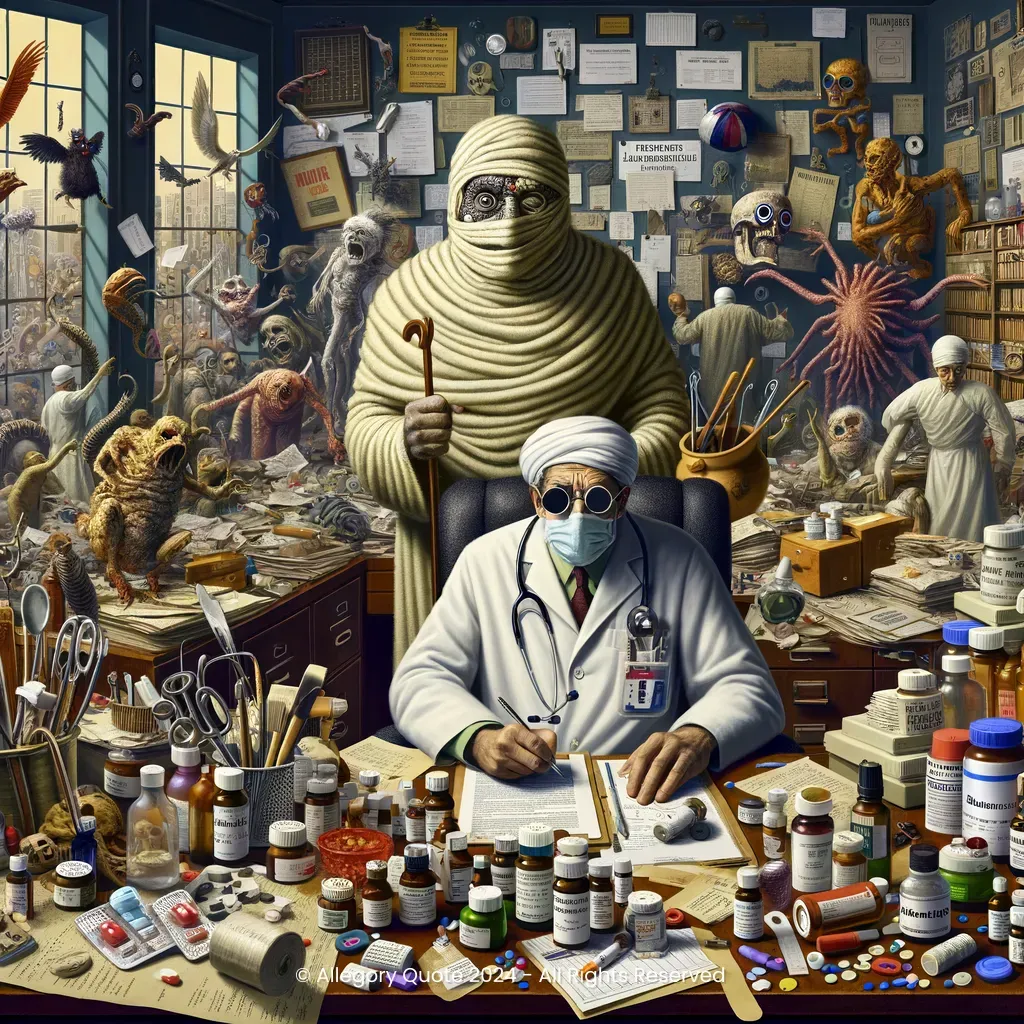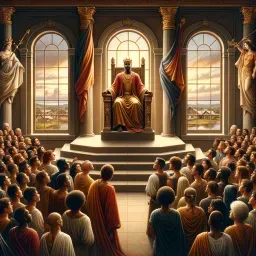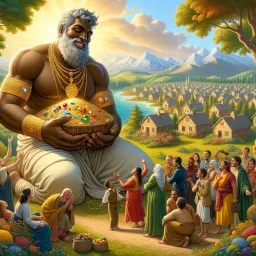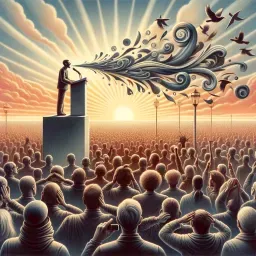”Politics is the art of looking for trouble,
finding it everywhere,
diagnosing it incorrectly, and applying the wrong remedies“

0
0
0
0
- Meaning
- The phrase suggests that politics is often about exaggerating or even creating problems, misunderstanding them, and then implementing solutions that do more harm than good. This cynicism reflects a distrust in political systems and highlights the irony that those in power may not always be the most competent in solving issues.
- Allegory
- The doctor's office setting represents the political arena, with the doctor symbolizing politicians. The oversized patient covered in bandages, representing society, illustrates the cumulative harm from incorrect remedies. The monstrous creatures in the background personify misunderstood problems that continue to cause havoc despite numerous attempts to control them. Tools and charts that don’t match the patient’s needs symbolize misguided and ineffective political efforts. The clutter of files and irrelevant medicines highlights the chaos and confusion often found in political actions, much like how the phrase describes fruitless problem-solving in politics.
- Applicability
- Applying the meaning of this phrase to personal life can serve as a reminder to be cautious of overly simplistic or reactive solutions to complex problems. It encourages individuals to thoroughly understand an issue before attempting to resolve it and to be wary of those who claim to have all the answers without a clear understanding of the problem.
- Impact
- The impact of this phrase has been to highlight the often absurd and counterproductive nature of political mechanisms. It resonates in various contexts of political disillusionment and has been used to criticize ineffective governance worldwide. The phrase is particularly popular in discussions about political reform and accountability.
- Historical Context
- Ernest Benn was active during the early 20th century. The phrase likely originates from this period, which was a time of significant political upheaval and social changes—post-World War I, the interwar period, and leading into World War II. During these times, there was widespread public disillusionment with political leaders and processes.
- Criticisms
- Criticisms of this phrase could focus on its overly cynical view of politics, potentially undermining constructive political engagement and fostering apathy or distrust among citizens. It may also be construed as delegitimizing genuine political efforts that work towards finding effective solutions.
- Variations
- Variations of this phrase reflect similar contentions across different cultures. For example, there’s a Russian proverb: "Stupidity and desperation are the parents of politics," which also speaks to the flawed nature of political decision-making. The interpretation of political cynicism is quite a universal theme, showing that mistrust in political systems is a common element in many cultures.
-

We must be the great arsenal of democracy.
-

Trust, but verify.
-

It is better to be feared than loved, if you cannot be both.
-

The public service is a public trust.
-

With friends like these, who needs enemies?
-

All warfare is based on deception.
-

Public office is the last refuge of the incompetent.
-

That government is best which governs least.
-

We make a living by what we get, but we make a life by what we give.
-

Freedom is the right to tell people what they do not want to hear.
-

Imagination is more important than knowledge.
-

Genius is one percent inspiration, ninety-nine percent perspiration.
No Comments